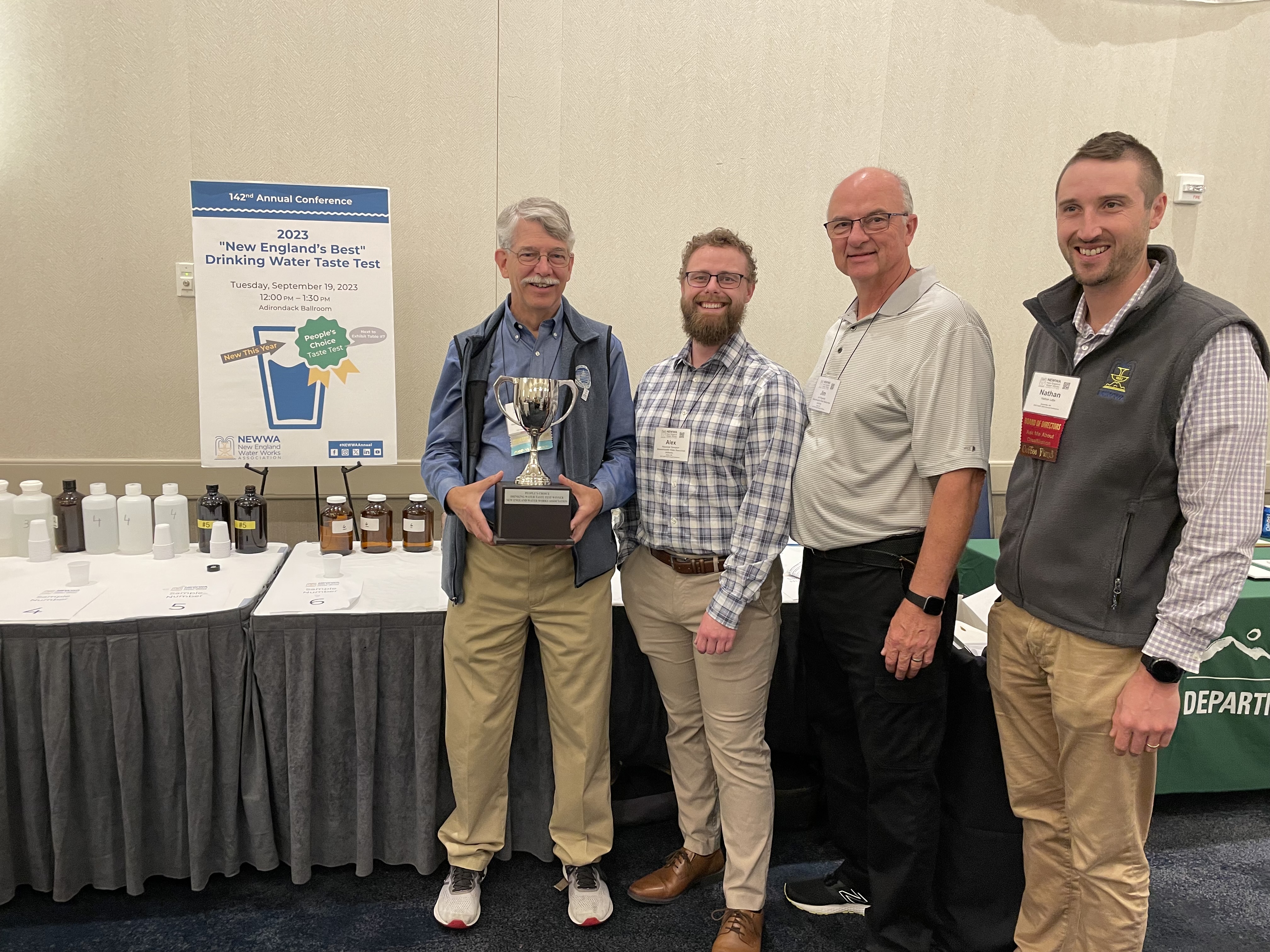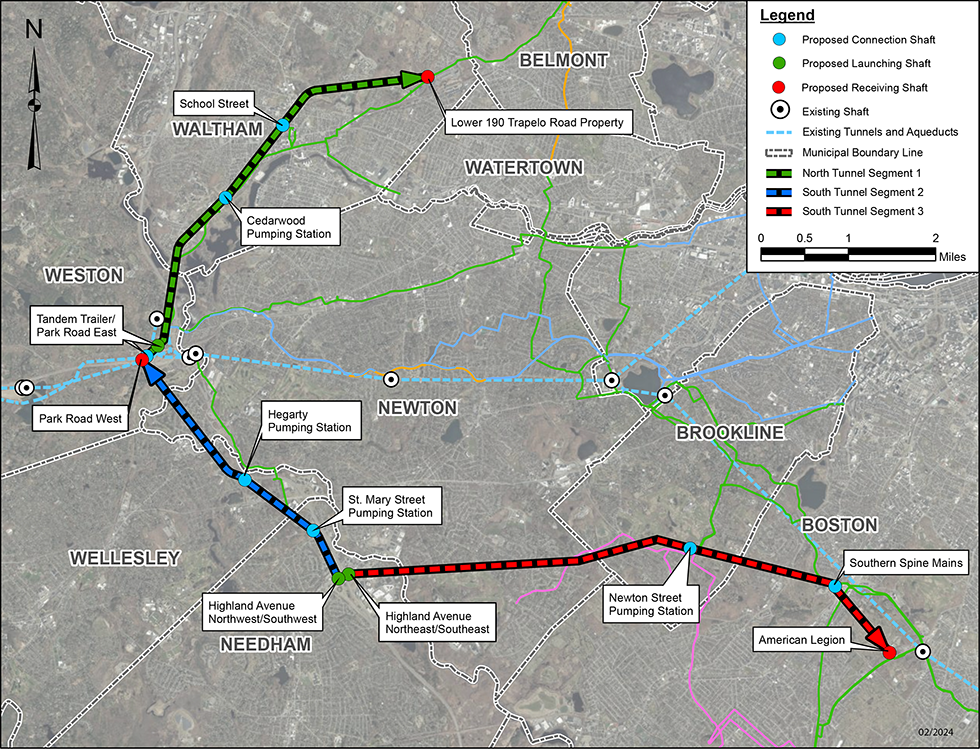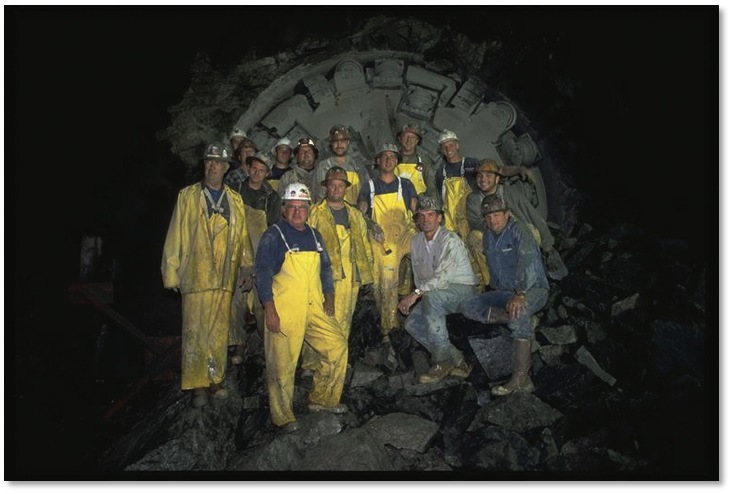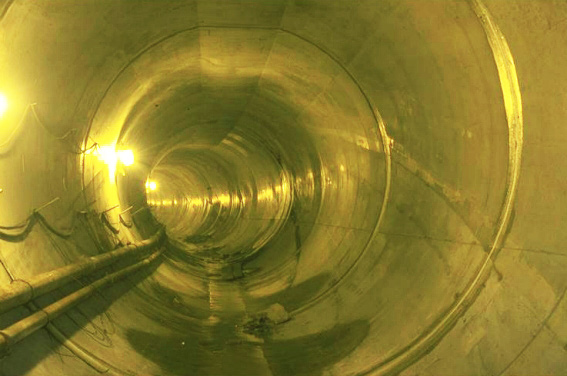Massachusetts Water Resources Authority
Home | About the Program | Program Updates
Notices, Meetings & Events | Community Updates | FAQs
Resources & Contacts
Frequently Asked Questions
MWRA's water comes from the Quabbin Reservoir, about 65 miles west of Boston, and the Wachusett Reservoir, about 35 miles west of Boston. The reservoirs are filled naturally. Rain and snow fall onto watersheds (protected land around reservoirs) and eventually turn into streams that flow into reservoirs. This water comes into contact with soil, rock, plants and other material as it follows its path. This process helps to clean the water.
MWRA provides water to 2.5 million people in 51 Massachusetts communities.
The MWRA supplies approximately 200 million gallons of water per day, on average.
MWRA's Quabbin reservoir has 412 billion gallon in capacity and the Wachusett reservoir has 65 billion gallon in capacity. The Quabbin reservoir alone can hold a five-year supply of water. The Quabbin/Wachusett system is so large that it can withstand short- and medium-length droughts and dry periods without a significant impact on its operating levels.
In total, MWRA's water storage tanks hold approximately 180 million gallons of treated water. The water is continuously used and replenished.
The existing MWRA water transmission system has about 105 miles of active tunnels and aqueducts (mostly 10 to 14 feet in diameter) and 39 miles of standby aqueducts. The transmission system is connected to the distribution mains and many smaller community pipes. Visit our water system web pages for more information.
Water Quality
MWRA's drinking water is treated according to strict state and federal standards so that it is safe to drink. Because drinking water is a natural resource, its taste, color and odor can sometimes vary slightly from day to day, from town to town, and from faucet to faucet. MWRA provides drinking water to 51 communities. Some communities are only partially-supplied by MWRA. More detailed information about where the water in your city or town comes from and how it is treated is available in our Annual Water Quality Report.
MWRA tests over 1,600 water samples per month, from our reservoirs all the way to household taps. Water is tested for over 120 possible contaminants.
Yes! MWRA's water is known for its award-winning good taste, year after year. The Massachusetts Water Resources Authority took home the 2023 “People's Choice” award for drinking water in a contest held at the New England Water Works Association’s annual conference in Burlington, Vermont. Samples from competing New England water utilities were tasted at room temperature by an impartial panel of judges and scored on a 1-10 scale.
MWRA has won "New England's Best" three times in the regional contest previously, and was awarded "Best of the Best" nationally by the American Water Works Association in 2021.
MWRA staff receive "People's Choice" award in 2023
Water for most of MWRA's customer communities (except Chicopee, South Hadley Fire District #1 and Wilbraham) is treated at the John J. Carroll Water Treatment Plant at Walnut Hill in Marlborough. Water from the Quabbin and Wachusett reservoirs enters the plant through the Cosgrove or Wachusett Aqueduct. The treated water leaves the plant through the MetroWest Water Supply Tunnel and the Hultman Aqueduct. Water for Chicopee, South Hadley Fire District #1 and Wilbraham is treated at the William A Brutsch Water Treatment Facility in Ware, Massachusetts.
Metropolitan Water Tunnel Program
The new tunnel system, as proposed, will consist of a northern tunnel and a southern tunnel in and around the Metropolitan Boston area. Both tunnels are proposed to begin near the terminus of the Hultman Aqueduct and MetroWest Water Supply Tunnel in the town of Weston, Massachusetts. The northern tunnel is proposed to extend north to existing WASM3 transmission main near the Waltham/Belmont line. The southern tunnel would run southeast to tie into the surface connections near Shaft 7C of the Dorchester Tunnel in Mattapan.
MWRA has been working closely with the host communities to ensure minimum impact to residents and businesses along the routes.
The Metropolitan Water Tunnel Program recently completed the preliminary design and environmental review stage. Preliminary design involved alternatives screening and evaluations, environmental assessment, permitting, base mapping, geotechnical investigation and preliminary design of the new tunnels. Final design will commence after preliminary design is complete, with tunnel construction planned to occur from approximately 2028 through 2040.
The new tunnels are anticipated to be about 10 to 12 feet in finished inside diameter. During construction, the tunnel diameter will be larger to allow for lining of the tunnel and other construction activities.
It is anticipated that the new tunnels will be about 15 miles long in total.
The new tunnels will be constructed deep in bedrock, about 200 to 500 feet below ground surface.
The new tunnels are anticipated to be constructed primarily using Tunnel Boring Machines (TBM). The tunneling mining work will take place deep in bedrock about 200 to 500 deep underground.
Tunnel workers standing with a
Tunnel Boring Machine (TBM) cutterhead
Once completed, the tunnel walls will be lined with concrete or steel. The new system will then be cleaned and disinfected before connection to the existing system.
Constructed water supply tunnel prior to cleaning
The MWRA has a core mission to provide reliable, cost-effective and high quality water, and a goal of maintaining sustainable and predictable rate assessments to our member communities. In keeping with this, the expected long-term rate impacts resulting from the Tunnel Program have been evaluated.
The final cost of the Tunnel Program is not yet defined because final design and construction are still years away with much work to do in the meantime. However, an estimated $2.1 billion is being carried in our Capital Improvement Program Budget (Proposed FY2025). The impacts of the estimated cost are included in MWRA’s current rate projections.
Contact Information
Please contact Carmine DeMaria, MWRA Community Relations Coordinator, or Tunnels.Info@mwra.com if you have any questions or concerns about the Metropolitan Water Tunnel Program.
Updated April 10, 2024
PDF files on this site require Adobe Acrobat Reader (free download)



